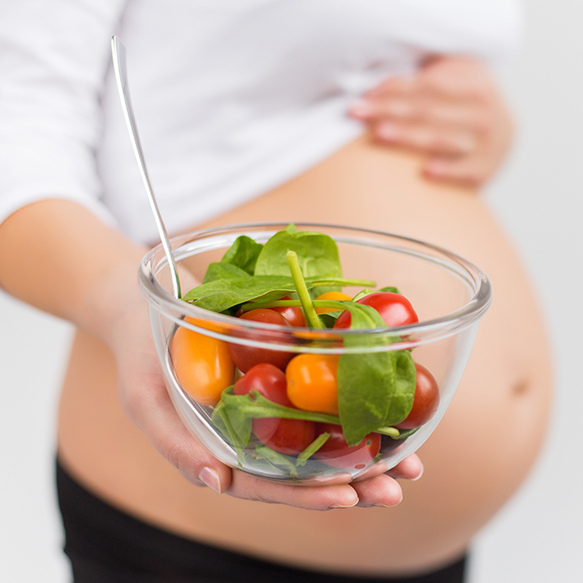There is nothing more refreshing than biting into a forkful of fresh salad made from folic acid-rich dark, leafy spinach. Salads are part of a healthy pregnancy diet, but they can also be a war zone for unhealthy bacteria like listeria and other food-borne bacteria. When choosing a salad, be careful to choose only healthy, safe lettuces, toppings, meats, and dressings.
According to the National Institutes of Health, all fresh fruits and vegetables should be washed with clean water before consumption. It is also important to clean the work surface where the salad will be prepared with warm, soapy water prior to cutting fresh fruits and vegetables.
Lettuce
All salad lettuces are considered safe for consumption during pregnancy, but not all lettuces are created equal. Dark, leafy lettuces and greens like spinach, arugula, radicchio, and romaine contain more vitamins and nutrients than iceberg lettuce. Prepackaged lettuces and greens, though sometimes washed before packaging, should be washed before consuming to ensure no residual bacteria is present.
Other Fruits And Vegetables
Almost all fruits and vegetables are considered safe additions to your salads during pregnancy as long as the foods are washed clean prior to eating.

Meats And Salad Dressings
Meats should be cooked to the well-done stage before adding to salads. For red meat and poultry, internal temperatures should reach 165-degrees and 180-degrees, respectively. Lunch meats and deli meats may contain listeria, a dangerous foodborne bacteria. Pregnant women should skip lunch meats on salads during pregnancy.
Salad dressings containing raw egg are not safe during pregnancy. Cooked salad dressings are considered safe as long as raw eggs are cooked for a minimum of 10 minutes, according to the National Institutes of Health. Eggs can also be added to salads as long as they are hard-boiled or cooked for a minimum of 10 minutes.
Salad Buffets
Salad buffets are not considered safe for pregnant women for multiple reasons. There is no way to be certain greens, fruits and vegetables have been washed, lunch meat is typically available on all salad bars and may cross-contaminate other foods, and meats/eggs are not always cooked to well done or kept at high enough temperatures to prevent foodborne bacterial growth.

